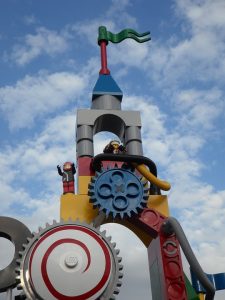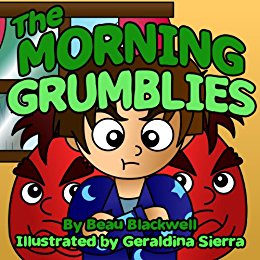Monday starts the week’s routine; did you know kids need routines? This post explores why and since it’s friendship month, making friends with routines.

A routine functions like an invisible security blanket. It wraps around a child giving a sense of comfort and familiarity. Kids know what’s coming next, instead of always being surprised. It’s easier to prepare and feel in control. Having to deal with something new constantly can be challenging and stressful. Usually, we think of stress in terms of adults, but one in four kids is affected by anxiety. A routine eases that.
As adults, we’ve had years of routines so we can predict pretty accurately how a day will roll. Since kids are new at this, it helps to have clues.
Typically, a routine for kids starts with getting up, having breakfast, and getting ready for the rest of the day. It might be at home, or at a care center. Some play time possibly mixed with a few errands, lunch, maybe a nap, play activities and hopefully, some outside time. Then, the day winds down with the last meal, although with kids that’s debatable, and bedtime. Having a consistent bedtime helps with sleep issues and getting a good rest. Kids play hard and adequate rest is essential.
To help kids with routines, this is part of an earlier post, suggests resources:
“Clocks with pictures give kids clues about the very basic sleep-awake cycle. Stories and books are encourage acceptance of routines. For kids that are sleepy and grumpy in the morning, share “The Morning Grumblies: A Book About Waking up Grumpy” by Beau Blackwell. Anna Dewdney writes about wiggles and shakes to start the day in “Llama llama, wakey wakey.” You may want to find pictures on line and make a plan for the day in pictures.”
 For each part of the day, give kids information about what’s happening next. Occasionally, get mixed up and let them ‘correct’ you. They think this is funny. For instance, you might tell them to wash hands and put on their pajamas for lunch. If you do this a few times on purpose, kids can’t tell when you are lost in space and doing it accidentally. Kids need routines and so do adults. They help brains.
For each part of the day, give kids information about what’s happening next. Occasionally, get mixed up and let them ‘correct’ you. They think this is funny. For instance, you might tell them to wash hands and put on their pajamas for lunch. If you do this a few times on purpose, kids can’t tell when you are lost in space and doing it accidentally. Kids need routines and so do adults. They help brains.
“Routines not only support our biological clocks and lessen anxiety, they can affect our emotions, success with learning, and relationships. Growth hormone is secreted during sleep when the body can divert energy from “maintaining wakefulness and activity levels, to the function of growth.” Clocks have hands—well, at least they used to. In a way, routines are the hands for the day, pointing us in the right direction at the right time.”
Kids need routines. How do you help your child when it comes to routines?
